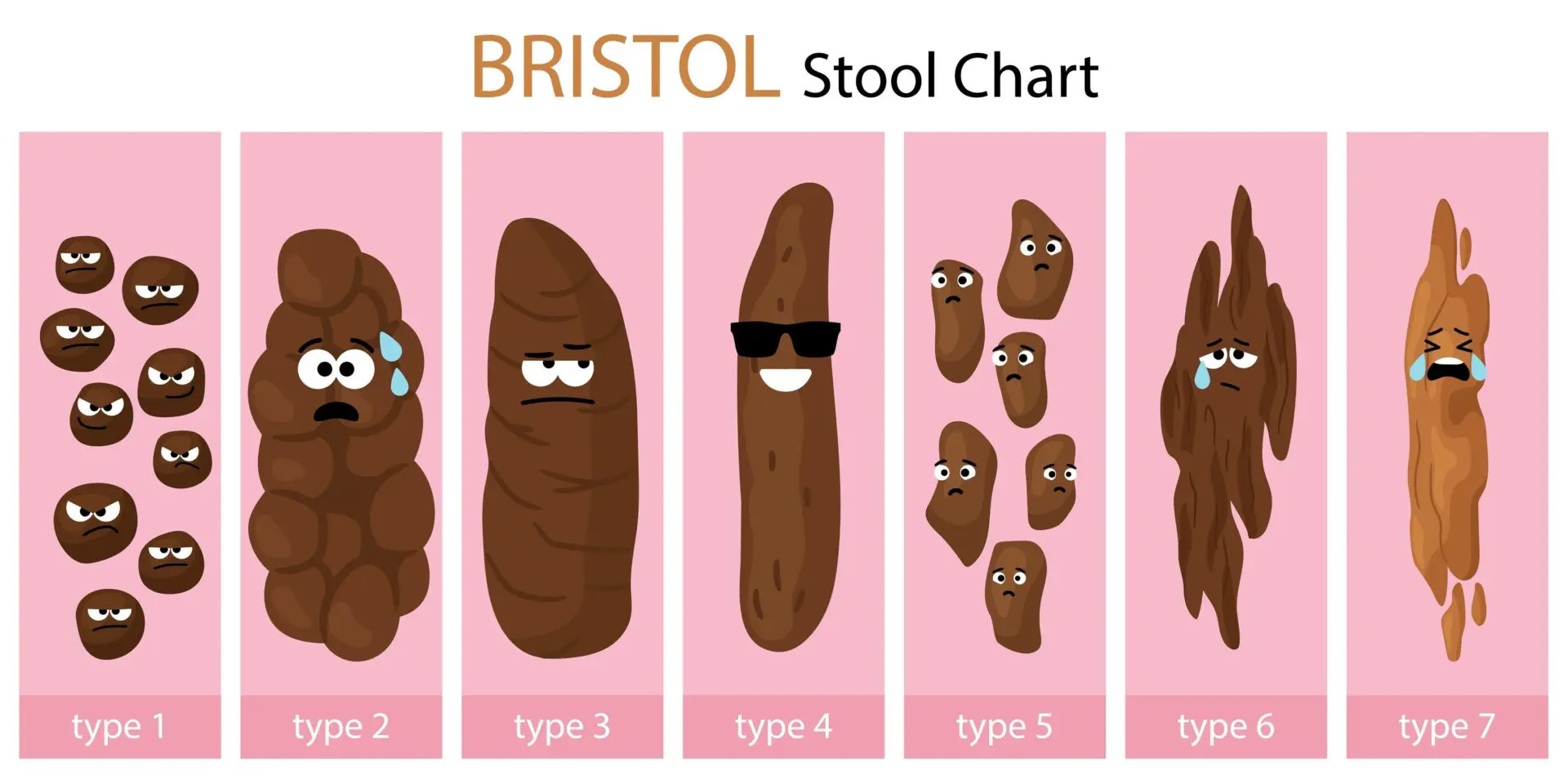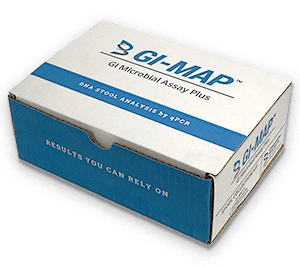
Are you ready to take charge of your health?I help women achieve vibrant health through all phases of life with a personalized, holistic approach.
SIGN UP FOR MY NEWSLETTER AND GET YOUR FREE GIFT:
A SMART WOMAN'S GUIDE TO HORMONE BALANCE

SIGN UP FOR MY NEWSLETTER AND GET YOUR FREE GIFT:
A SMART WOMAN'S GUIDE TO HORMONE BALANCE

The GI-MAP (Gastrointestinal Microbial Assay Plus) is a comprehensive functional stool test we recommend for women seeking deep insights into their gut health. This test goes far beyond conventional stool analyses, offering a complete picture of your microbiome, digestive function, and immune health. If you’re curious about how a stool test can improve your health, this post is for you. We’ll explore who should consider the GI-MAP test and what it reveals about your overall well-being.
In my practice, I commonly order this test for women with these issues:
Your stool is a window into your gut’s health. Ideally, you should have at least two bowel movements per day, with stools that are smooth and snake-like in shape—this is Type 4 on the Bristol Stool Chart. If your stool is hard, soft, or sticky, the GI-MAP can help uncover the root cause.

Gut health is a cornerstone in managing autoimmune diseases. A GI-MAP test can identify harmful microbes that may trigger an autoimmune response. A balanced microbiome—rich in beneficial bacteria and free of harmful microbes—is key for regulating immune responses and managing autoimmune conditions.
Other types of immune dysfunction that point to an imbalance in the gut microbiome include histamine intolerance, multiple food sensitivities, allergies, skin conditions, and frequent or chronic infections.
Unexplained systemic inflammation—in the brain or body—often originates in the gut. An overgrowth of harmful microbes can cause a condition called lipopolysaccharide endotoxemia. This is when bacterial toxins leak into the bloodstream, causing widespread inflammation. Even if you don’t have digestive symptoms, consider this test if you experience:
Your gut microbiome plays a crucial role in regulating metabolism, blood sugar, and appetite signals. Specific beneficial bacteria can support a healthy, lean metabolism and naturally boost GLP-1 peptides, which are important for satiety and metabolic balance. Conversely, an imbalance of harmful bacteria can lead to elevated insulin levels and resistance to weight loss. If you’re experiencing unexplained weight gain, a GI-MAP test can reveal whether your gut microbiome may be contributing to the issue or creating barriers to effective weight management.
Gut health is essential for hormone metabolism, especially when it comes to estrogen. Within the gut microbiome, a specific group of bacteria known as the “estrobolome” is responsible for breaking down and metabolizing estrogen. If you’re experiencing symptoms of estrogen imbalance, such as fibroids, endometriosis, breast tenderness, or painful periods, the GI-MAP test can provide valuable insights into your estrogen metabolism.
For women with IBS, we typically find imbalances on their GI-MAP test results that explain their symptoms. With IBS, we also investigate food sensitivities and small intestine bacterial overgrowth (SIBO), which require additional tests. The majority of women with IBS have these issues as well.
We also order the GI-MAP with vague undiagnosed symptoms like bloating, reflux, indigestion, and gas. Lastly, we run this test regularly for inflammatory or auto-immune bowel diseases, such as colitis and celiac. For these populations, we want to see clean test results once a year!
There are four main components to this test:
Using advanced PCR technology, the GI-MAP analyzes both harmful and beneficial microbes. Unlike conventional stool tests, it identifies the exact strains present, giving you a clearer picture of your microbiome’s overall health. These microbes include bacteria, archaea, viruses, fungi, amoebae, and worms. A practitioner trained to interpret these results can create a treatment plan to improve the beneficial microbes and reduce the harmful or opportunistic ones.
This test measures pancreatic elastase, an enzyme the pancreas produces that is not broken down in the digestive tract. The levels found in stool need to be at a specific range, and if low, they signify pancreatic insufficiency. Low levels can result in indigestion, bloating, diarrhea, or reflux. The GI-MAP also measures undigested fat in the stool, which sheds light on potential gallbladder dysfunction or lipase deficiency.
The GI-MAP tracks several immune markers, including:
The GI-MAP tests microbes that influence your metabolism and appetite. It also tests beta-glucuronidase, an enzyme that interferes with estrogen elimination. Results can give clues about your ability to detoxify estrogen and other toxins, as well as manage weight.
If you’re experiencing digestive discomfort, autoimmune issues, chronic inflammation, or hormonal imbalances, the GI-MAP test can offer valuable insights to help guide your treatment. Many patients order the test before their first appointment, allowing us to begin your personalized care plan immediately.

Do you have any thoughts, questions, or insights to share? I’d love to hear them in the comments below.

Dr. Laura Paris is a women’s health specialist who provides Acupuncture and Functional Medicine care at her two clinics in Capitola and Monterey, California. She also works with women remotely in the United States through telehealth appointments. Learn more about Laura here, and message her directly here.
Click the button to talk to Dr Laura on a 20-minute discovery phone call ($67)
Comments are closed.
I love your bristol tool chart. Where can l download one like this?
I’ve read a lot about gut zoomer being the most comprehensive testing and accurate. Any chance you’ll be offering that through rupa for order? Thank you
I haven’t used the gut zoomer yet (I am happy with GI Map and it’s cheaper) but I am happy to add it and intrigued to see results. We will add it now.